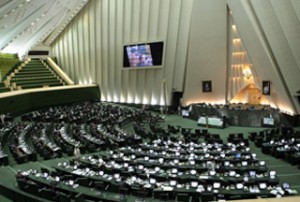Iran calls for ban on Israeli products

Iranian lawmakers have approved a bill calling on the country’s Foreign Ministry to establish a major effort to enforce a total embargo of goods originating in Israel.
The lawmakers agreed on Wednesday to task a committee with identifying Israeli companies and institutions in order to step up efforts for imposing a ban on Israeli products.
The bill, which came in support of the Palestinian people, was ratified by the Iranian Parliament (Majlis) with 185 votes in favor.
Under the Majlis call, the Iranian Foreign Ministry is required to put forward a proposal for the boycott of Israeli commodities at international meetings including the Organization of the Islamic Conference (OIC) and the Non-Aligned Movement (NAM).
The move comes one week after Israeli navy commandoes attacked the Gaza-bound Freedom Flotilla in international waters, killing 20 people onboard and injuring dozens of others.
The Israeli assault has sparked international condemnation and massive protests against Israel’s three-year blockade of the impoverished coastal sliver.
Israel has remained defiant of the UN calls for an international probe into the deadly attack, saying it will conduct its own investigation.







